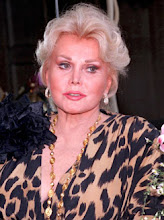Music has its Charms
“What now?” Robert thought to himself as the nurse shook his shoulder. “Why in the hell don’t they let me sleep,” he wondered to himself. It wasn’t as if he had somewhere to be. He knew he was a patient in a home, but beyond that he didn’t know much anymore. He’d had a good life altogether, and now he just wanted to sleep, but the tugging continued and finally he gave in and sat up. He looked around the room and saw a man lying beside him, snoring, and he wondered for a minute if he was back in the Navy. He looked in the mirror and saw the white hair and decided that probably wasn’t it. A nurse with a very high pitched voice reminded him, “Time to get up now Robert,” and he wearily pushed his arm into the sweater they had picked out for him.
At the breakfast table, the one with the squeaky voice was still hovering over him and he wished she would give him a little space. “Say hello to your friends Robert,” the nurse suggested, and he looked around and saw one lady asleep and two other men staring straight ahead. “Are these really my friends,” he thought to himself. He said hello politely and began to eat his breakfast, deciding that they must not be that great of friends if he couldn’t remember a thing about them.
He woke up to a radio playing, and it was a familiar tune. “Baby face, you’ve got the cutest little baby face,” the song went along. And then he remembered. He closed his eyes and saw her fiery red hair and remembered how it took him a half-hour and three glasses of beer to go up and talk to her. “There’s not another one who’ll take your place, baby-face,” the song continued, and indeed for him no one ever had. They got married as soon as he got back from the war, and those first years together were the happiest memories of his life.
Robert woke up, looked around and again wondered where he was. It seemed later now, and then, without warning a balloon hit him in the head. “Pay attention Robert!” a lady he had never seen before commanded. He looked up and there were people sitting in a circle tossing a balloon. He reared back and smacked the ball all the way to the other side of the room, “Bingo!” he yelled, thinking this might keep them off his back for a while. Then he heard the radio again. “You must remember this, a kiss is still a kiss, a sigh is just a sigh,” the song went along. And once again his mind wandered back. He remembered the song from the movieCasablanca
Robert’s wife had been killed in a car accident 8 years after they were married. They had three young daughters together, and without her he was lost. But he was a father, and he had to put on a brave face for his kids. He knew next to nothing about little girls, but they learned together as the years slipped away, and slowly, slowly after many, many years, the void in his heart left by his wife had begun to heal itself. “It’s still the same old story, a fight for love and glory,” the song continued. Every time he heard that song he could remember her red hair like it was yesterday. When he looked up a nurse was wiping a tear from his eye, and consoling him. He joined the balloon game they were playing to avoid making a scene, and soon he was back asleep again.
When he woke up again something had changed. He looked around his room, and saw a familiar face sleeping next to him “I wonder how long the good lord is going to let me lay around like this,” he said to no one in particular, and then he heard the familiar high voice and he began the morning routine once again. He seemed to be grasping things better today, and he said hello to a few people he knew. There was a spelling bee in the morning which he enjoyed, and he even managed to win a bag of chips in one of the bingo games. But now he was tired, and began wheeling towards his room. “Not until after dinner Robert,” a nurse reminded him, and he decided that he better just go along.
He put his head down on the table, when he heard the radio again. “When your heart’s on fire, you must realize, smoke gets in your eyes,” and he immediately remembered where he knew this one from. It was his daughter’s wedding song, and when he cut in to dance with her she looked so much like her mother he couldn’t help but feel incredible joy, sadness, and pride, all at once. His daughter had married a wonderful man, and he finally felt a little of the pressure lift from raising three young girls alone. They had done it, his family had made it, despite his thinking a million times they might not. He begun to sing out loud and eventually he got lost in his memories. Thankful for the radio that seemed so connected to the treasures of memory he wanted and needed to hold on to in his life
“What now?” Robert thought to himself as the nurse shook his shoulder. “Why in the hell don’t they let me sleep,” he wondered to himself. It wasn’t as if he had somewhere to be. He knew he was a patient in a home, but beyond that he didn’t know much anymore. He’d had a good life altogether, and now he just wanted to sleep, but the tugging continued and finally he gave in and sat up. He looked around the room and saw a man lying beside him, snoring, and he wondered for a minute if he was back in the Navy. He looked in the mirror and saw the white hair and decided that probably wasn’t it. A nurse with a very high pitched voice reminded him, “Time to get up now Robert,” and he wearily pushed his arm into the sweater they had picked out for him.
At the breakfast table, the one with the squeaky voice was still hovering over him and he wished she would give him a little space. “Say hello to your friends Robert,” the nurse suggested, and he looked around and saw one lady asleep and two other men staring straight ahead. “Are these really my friends,” he thought to himself. He said hello politely and began to eat his breakfast, deciding that they must not be that great of friends if he couldn’t remember a thing about them.
He woke up to a radio playing, and it was a familiar tune. “Baby face, you’ve got the cutest little baby face,” the song went along. And then he remembered. He closed his eyes and saw her fiery red hair and remembered how it took him a half-hour and three glasses of beer to go up and talk to her. “There’s not another one who’ll take your place, baby-face,” the song continued, and indeed for him no one ever had. They got married as soon as he got back from the war, and those first years together were the happiest memories of his life.
Robert woke up, looked around and again wondered where he was. It seemed later now, and then, without warning a balloon hit him in the head. “Pay attention Robert!” a lady he had never seen before commanded. He looked up and there were people sitting in a circle tossing a balloon. He reared back and smacked the ball all the way to the other side of the room, “Bingo!” he yelled, thinking this might keep them off his back for a while. Then he heard the radio again. “You must remember this, a kiss is still a kiss, a sigh is just a sigh,” the song went along. And once again his mind wandered back. He remembered the song from the movie
Robert’s wife had been killed in a car accident 8 years after they were married. They had three young daughters together, and without her he was lost. But he was a father, and he had to put on a brave face for his kids. He knew next to nothing about little girls, but they learned together as the years slipped away, and slowly, slowly after many, many years, the void in his heart left by his wife had begun to heal itself. “It’s still the same old story, a fight for love and glory,” the song continued. Every time he heard that song he could remember her red hair like it was yesterday. When he looked up a nurse was wiping a tear from his eye, and consoling him. He joined the balloon game they were playing to avoid making a scene, and soon he was back asleep again.
When he woke up again something had changed. He looked around his room, and saw a familiar face sleeping next to him “I wonder how long the good lord is going to let me lay around like this,” he said to no one in particular, and then he heard the familiar high voice and he began the morning routine once again. He seemed to be grasping things better today, and he said hello to a few people he knew. There was a spelling bee in the morning which he enjoyed, and he even managed to win a bag of chips in one of the bingo games. But now he was tired, and began wheeling towards his room. “Not until after dinner Robert,” a nurse reminded him, and he decided that he better just go along.
He put his head down on the table, when he heard the radio again. “When your heart’s on fire, you must realize, smoke gets in your eyes,” and he immediately remembered where he knew this one from. It was his daughter’s wedding song, and when he cut in to dance with her she looked so much like her mother he couldn’t help but feel incredible joy, sadness, and pride, all at once. His daughter had married a wonderful man, and he finally felt a little of the pressure lift from raising three young girls alone. They had done it, his family had made it, despite his thinking a million times they might not. He begun to sing out loud and eventually he got lost in his memories. Thankful for the radio that seemed so connected to the treasures of memory he wanted and needed to hold on to in his life








